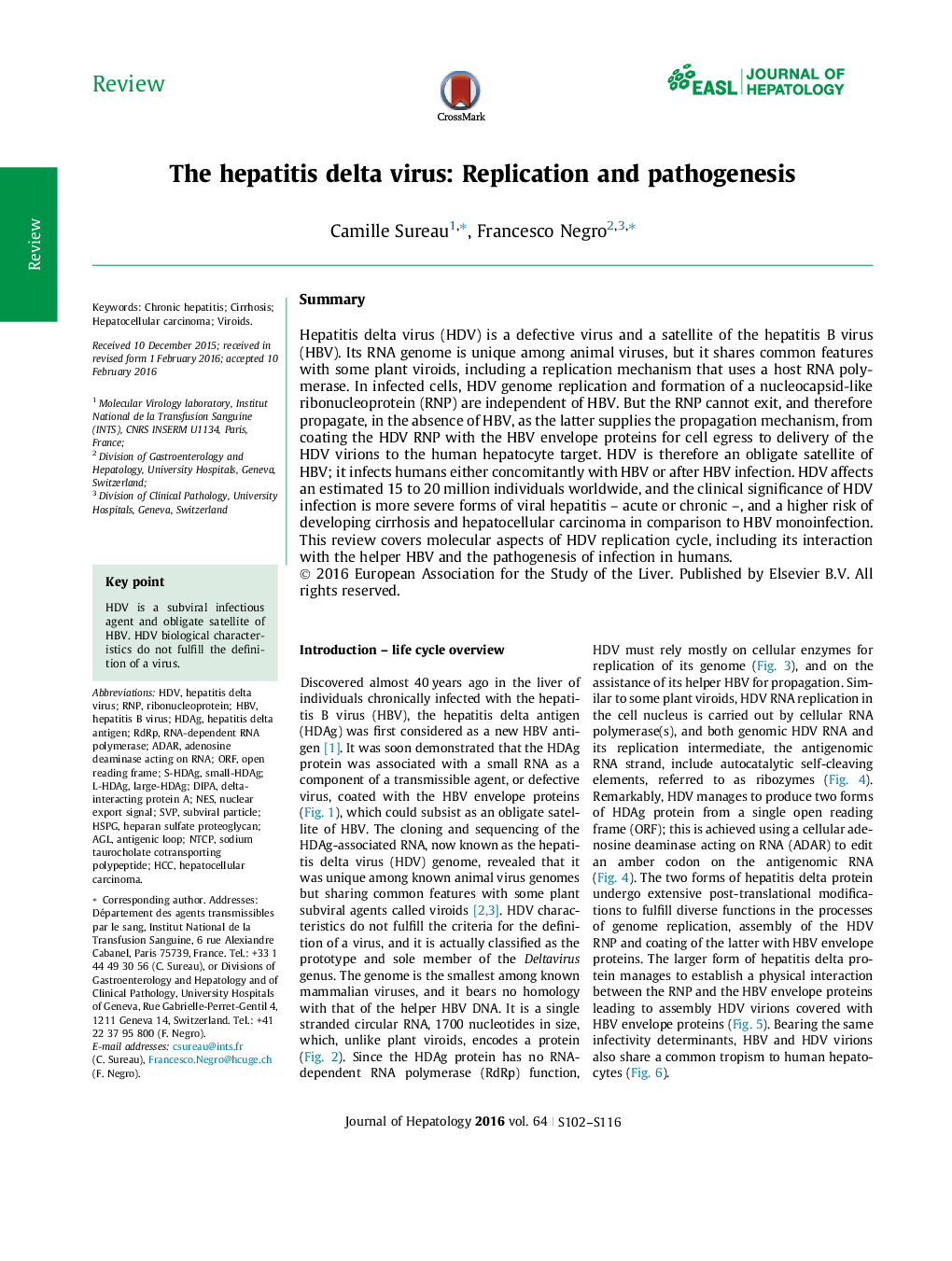| کد مقاله | کد نشریه | سال انتشار | مقاله انگلیسی | نسخه تمام متن |
|---|---|---|---|---|
| 3313544 | 1211102 | 2016 | 15 صفحه PDF | دانلود رایگان |
SummaryHepatitis delta virus (HDV) is a defective virus and a satellite of the hepatitis B virus (HBV). Its RNA genome is unique among animal viruses, but it shares common features with some plant viroids, including a replication mechanism that uses a host RNA polymerase. In infected cells, HDV genome replication and formation of a nucleocapsid-like ribonucleoprotein (RNP) are independent of HBV. But the RNP cannot exit, and therefore propagate, in the absence of HBV, as the latter supplies the propagation mechanism, from coating the HDV RNP with the HBV envelope proteins for cell egress to delivery of the HDV virions to the human hepatocyte target. HDV is therefore an obligate satellite of HBV; it infects humans either concomitantly with HBV or after HBV infection. HDV affects an estimated 15 to 20 million individuals worldwide, and the clinical significance of HDV infection is more severe forms of viral hepatitis – acute or chronic –, and a higher risk of developing cirrhosis and hepatocellular carcinoma in comparison to HBV monoinfection. This review covers molecular aspects of HDV replication cycle, including its interaction with the helper HBV and the pathogenesis of infection in humans.
Journal: Journal of Hepatology - Volume 64, Issue 1, Supplement, April 2016, Pages S102–S116
